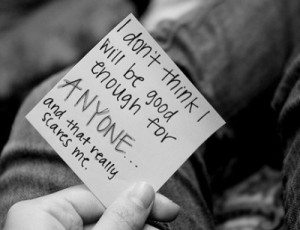 How much conscious care and nurturing do you give your love relationship?
How much conscious care and nurturing do you give your love relationship?
Do you emotionally feed, water, nurture, play with or tune up your relationship?
The high divorce rate and the increasing number of couples living in unhappy or unhealthy marriages may reflect the lack of care, fault- finding, and emotional neglect in many relationships. Sadly, we typically put lots of time, attention and energy into the beginning of a relationship. Once we make a commitment, get married and settle into life together, the amount and quality of attention and energy decreases. Sometimes couples complain that life gets in the way of maintaining a constant flow of healthy energy and attention. Other priorities like work, children and school all take so much of our time and energy leaving very little for the marriage. We operate from the “squeaky wheel” principle – who or whatever squeaks the loudest or puts the greatest demand gets the attention. Who or what is “squeaking” in your life? To what are you giving attention in your life?
Gratitude is a rich and powerful food for our spirit. The act of acknowledging gratitude and appreciation activates the law of attraction – what you give attention to, multiplies. What you appreciate in your life, you get more of!! Isn’t that a compelling and interesting fact? Focusing on what you appreciate in your relationship will help those things grow and multiply in your relationship. Research tells us that an attitude of gratitude can have a positive effect on our thinking, mood and biochemistry. There doesn’t seem to be a down side to appreciation and gratitude.
It is important to tell your partner how much they are appreciated on a consistent basis. Everyone likes to hear kind words of gratitude. Take a moment daily to think of 3 things you are grateful for or appreciate about your partner and have your partner do the same. Perhaps, you can try keeping a gratitude journal together where you write down what you each appreciate. This journal will come in handy on days that you are feeling unappreciated, sad, angry or frustrated. It will actually help you get in a better mood and shift your neurochemistry.
The simple act of consciously focusing on gratitude is one of the best ways to nurture and emotionally feed your love relationship.

 Kids need guidance and discipline as they grow into responsible, caring adults. Parenting young teens is not for the faint of heart. It’s hard work. As young teens become more independent your parenting style may change. They need to be given more choices and taught critical thinking skills.
Kids need guidance and discipline as they grow into responsible, caring adults. Parenting young teens is not for the faint of heart. It’s hard work. As young teens become more independent your parenting style may change. They need to be given more choices and taught critical thinking skills. How about starting 2014 with a new intention instead of a resolution? If we set an intention rather than a resolution, we open ourselves up to a variety of possible outcomes, some of which might be more useful than what we imagined. An intention is not as goal directed as a resolution, so there is less chance of getting stuck or fixated on a particular outcome.
How about starting 2014 with a new intention instead of a resolution? If we set an intention rather than a resolution, we open ourselves up to a variety of possible outcomes, some of which might be more useful than what we imagined. An intention is not as goal directed as a resolution, so there is less chance of getting stuck or fixated on a particular outcome. Helping your child manage anger is often one of the hardest—and best—things we can do as parents. The first thing to recognize is that anger is a clear symptom of the presence of deeper emotions such as frustration, disappointment, fear, and pain. If we as parents acknowledge and name these underlying feelings for our children, their anger should start to dissipate.
Helping your child manage anger is often one of the hardest—and best—things we can do as parents. The first thing to recognize is that anger is a clear symptom of the presence of deeper emotions such as frustration, disappointment, fear, and pain. If we as parents acknowledge and name these underlying feelings for our children, their anger should start to dissipate. It used to be that after graduating from college, young adults would set out to create a nest of their own. Today, however, some 30% of young adults move back in with their parents—a higher proportion than any time since the 1950s.
It used to be that after graduating from college, young adults would set out to create a nest of their own. Today, however, some 30% of young adults move back in with their parents—a higher proportion than any time since the 1950s. If you’re a woman dealing with abandonment issues, know that healing is absolutely possible.
If you’re a woman dealing with abandonment issues, know that healing is absolutely possible. ADHD affects more than just kids’ waking hours. And in turn, sleep deprivation can make kids’ attention problems worse.
ADHD affects more than just kids’ waking hours. And in turn, sleep deprivation can make kids’ attention problems worse.

 Question: How can parents use behavioral therapy with children?
Question: How can parents use behavioral therapy with children?

